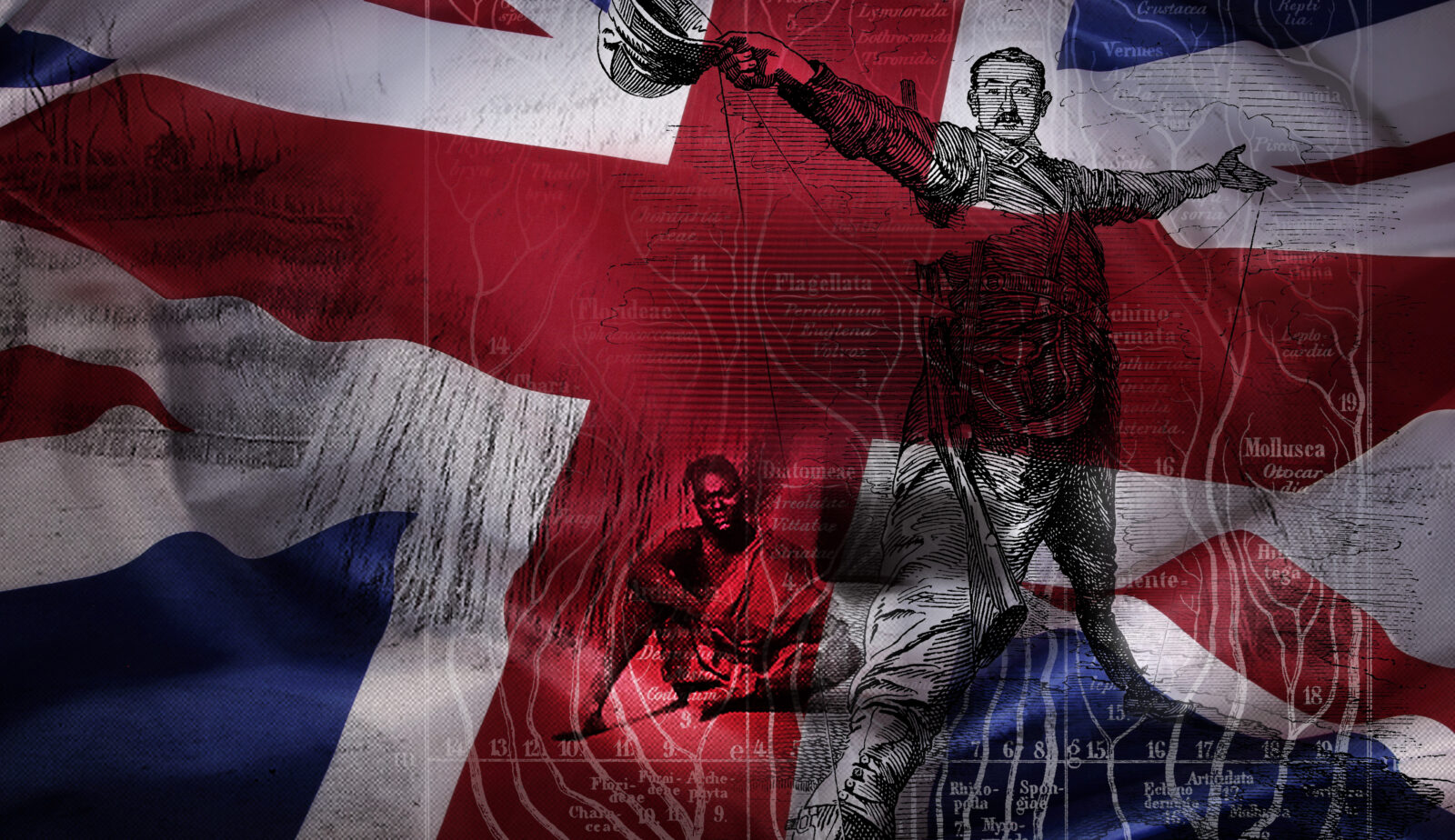


When Darwinian Racism Came to Africa, and the West
Today’s ID the Future features another reading from scholar Olufemi Oluniyi’s new book, Darwin Comes to Africa. In this excerpt we learn how Darwin himself laid much of the groundwork for social Darwinist ideas, primarily in his book The Descent of Man, and how those ideas were energetically developed in the ensuing decades by various mainstream scientists. Oluniyi further details how their work fueled pseudo-scientific racism against black Africans and other indigenous peoples outside the West. To learn more about this neglected corner of modern Western history, and for the good news that the flow of evidence has turned against Darwinism and, with it, social Darwinist principles, pick up Oluniyi’s book here.

When Darwinism Came to Africa, Horrors Ensued
On today’s ID the Future, hear a Nigerian voice-actor reading from the opening pages of Nigerian scholar Olufemi Oluniyi’s new book, Darwin Comes to Africa. In this section from the preface, Oluniyi explores the relationship of Darwinism to Social Darwinism, and some of the ways Social Darwinism fueled and justified horrific ideas and actions among European thinkers and colonizers. Oluniyi tells the story of Russian scientist Ilya Ivanovich Ivanov, who, guided by Social Darwinist thinking, “sought to produce a race of super-soldiers for Stalin’s army by impregnating French Guinea women with the sperm of a dead chimpanzee—black African women, mind you, who were presumed to be less highly evolved and thus closer to chimpanzees than were white European women.” As Oluniyi further notes, this scientist was far from a “lone gunman…. Colonial authorities approved the plan, and the Russian found support amongst both the French and American scientists.” As horrifying as this plan is, it and other horrors make sense under the false and twisted logic of social Darwinism, Oluniyi explains. Buy the eye-opening book here.

Olufemi Oluniyi’s New Book, Darwin Comes to Africa
On today’s ID the Future, scholar John West introduces Darwin Comes to Africa, the new book by Nigerian pastor, theologian, journalist, scholar, and human rights activist Olufemi Oluniyi. The work explores the poisonous influence of social Darwinism on British rule in northern Nigeria in the late nineteenth and early twentieth century, a poisonous influence felt in Oluniyi’s home country down to the present, he argues. The book project grew out of Oluniyi’s intimate knowledge of Nigerian culture as well as his attendance at the 2017 Center for Science & Culture Summer Seminar program in Seattle, Washington. By the end of that nine-day gathering, he had resolved to write a book about the impact of Social Darwinism on his home country and announced that intention to his fellow attendees. He died of Covid-19 four years later, but not before completing in-depth research on the subject of the book and sending Discovery Institute his manuscript. Listen in to learn more about what Oluniyi discovered, and purchase his fascinating book here.

Chimp and Human Genomes: An Evolution Myth Unravels
On today’s ID the Future, Casey Luskin rebuts the oft-repeated claim that the human and chimp genomes are 98-99% similar and therefore surely resulted from Darwinian common descent. Luskin cites an article in the journal Science which describes the 98-99% claim as a myth. The original figure was derived from a single protein-to-protein comparison, but once you compare the entire genomes, and use more rigorous methods, the similarity drops several percentage points, and on one account, down into the mid-80s. Additionally, the chimp genomes used in the original comparison studies borrowed the human genome for scaffolding, thus artificially boosting the degree of similarity. What about supposed junk DNA similarities between human and chimp? Why would an intelligent designer put the same useless “pseudogene” in both the original chimp population and original human population? Surely a better explanation, the evolutionists argue, is Darwinian common ancestry. The problem with that argument, according to Luskin, is that pseudogenes are turning out to have functions. In other words, they aren’t, as evolutionists had assumed, just so much junk DNA. One example: evolution advocates Kenneth Miller and Eugenie Scott cited the beta-globin pseudogene as knockdown evidence of common descent between humans and apes. But the beta-globin pseudogene, it turns out, is essential for producing red blood cells. This means that finding this gene in both apes and humans is no more indicative of mindless common descent than finding wheels on both cars and airplanes. An intelligent designer would be expected to use the successful design element in both cases. Luskin provides still other lines of evidence undercutting the DNA-similarity argument for chimp-human common ancestry. Tune in to hear it all. And to read Luskin’s latest work on the subject, get the new free online ID book from South Africa, Science and Faith in Dialogue, with contributions from Luskin, Stephen Meyer, Hugh Ross, Guillermo Gonzalez, James Tour, Fazale Rana, Marcos Eberlin, and others.
Weikart on Racism, Darwinism and Christianity
On this episode of ID the Future, Cal State history professor Richard Weikart, author of The Death of Humanity and the Case for Life, talks racism past and present, in both Christian and “scientific” secular history.
Read More ›
Intelligent Design in South Africa: Brian Miller and Ray Bohlin Report
This episode of ID the Future features a conversation between physicist Brian Miller and biologist Ray Bohlin and about their recent speaking tour in South Africa, where they made a case for intelligent design. The pair talk about the open reception they received from sympathizers and skeptics alike. South Africa, they say, is less infused with materialistic philosophy than is Europe or America’s research universities. This means an open door for ID. However, it’s a door that threatens to close, they warn. Listen in to learn more.
Read More ›